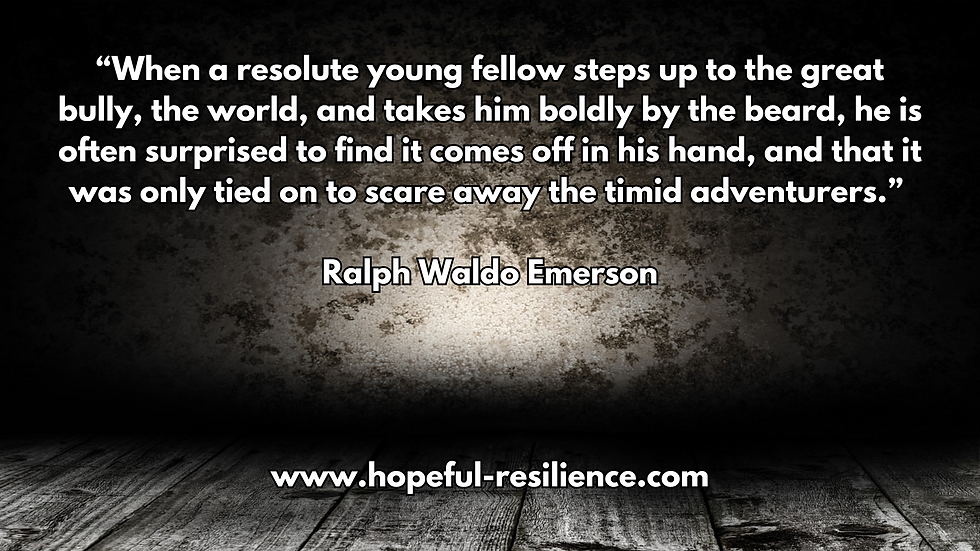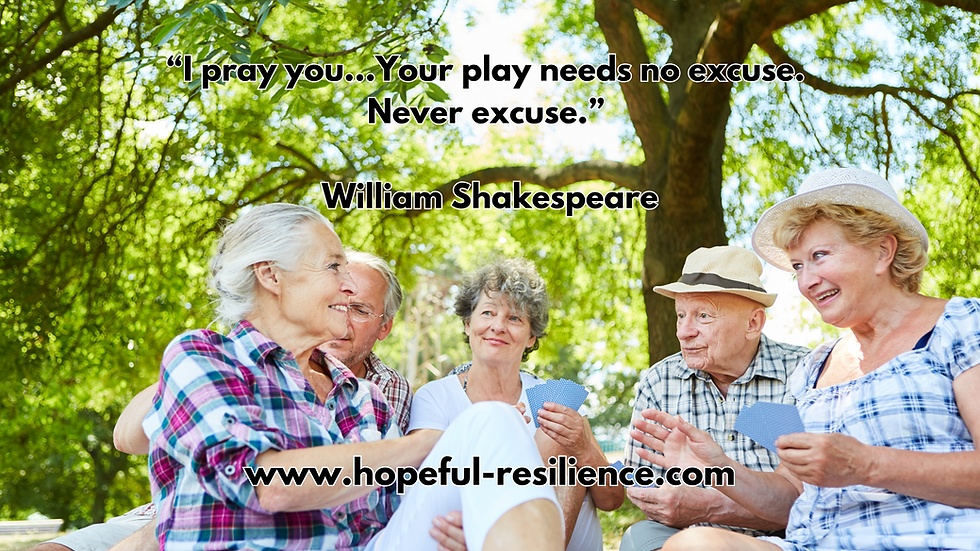July 24, 2025 – After the Election, Still Boldly Telling the Truth
- Anna Klinman
- Jul 24
- 5 min read
Trigger Warning: This blog post contains detailed descriptions of childhood molestation and trauma. It may be distressing or triggering for some readers. If you feel overwhelmed or need support, please reach out to a trusted friend, family member, or mental health professional. Your well-being matters, and you are not alone.
“Always be in your strength, always use your voice, and don’t let anyone make you quiet.”— Amandla Stenberg

Over a year ago, in the lead-up to the 2024 election, I wrote this piece to call people to awareness and empathy. I spoke honestly about my experience as a survivor, and I begged others to consider what is at stake in our elections—not just policy, but people.
Now it’s 2025. Donald Trump has returned to power. J.D. Vance is Vice President. And while we are watching this new administration move quickly to consolidate control, another horror resurfaces: the Jeffrey Epstein case is dominating the headlines again. Names, allegations, coverups. Once again, the pain of survivors is becoming fodder for media cycles, political spin, and online outrage.
But will we stop to care about the actual lives behind the headlines?
I am still asking you to look. Not away. Not around. But at us. The real people.
I was one of them.
For months, I explored human values on this blog—kindness, honesty, courage, hope. And when it came time to write about boldness, I froze. Because boldness means saying the thing that might make people uncomfortable. It means risking judgment, silence, or rejection to tell the truth.
But today, with this country where it is, boldness is no longer optional.
I wrote previously about a dream that compelled me to write down my truth. It was vivid, real, and terrifying. I was reliving the moments from my childhood when I was molested by my father. In the dream, I wasn’t small and scared—I was bold. I used my voice. I didn’t protect anyone but myself and my siblings.
That’s what I want to do now. I want to protect the people who still don’t feel safe, who are watching this political moment with fear in their gut because they’ve lived through something like it before.
“In difficult and hopeless situations, the boldest plans are the safest.”— Titus Livy

I was a child when I learned what it meant to be controlled. To have no voice. To be hurt and then told not to speak.
And now we are being told again—through laws, rhetoric, and judicial appointments—that survivors are a threat, that our pain is an inconvenience. If you dare to speak out against power, you are dismissed, discredited, or drowned out.
But I’m still here. And I’m still telling the truth.
The Trump/Vance administration is already targeting reproductive rights, trans children, academic freedom, and civil dissent. Their rise to power is emboldening people who believe in cruelty as governance. We are not just facing policy changes—we are seeing the cultural re-legitimization of bullying, abuse, and authoritarianism.
And for those of us who have lived through personal authoritarianism—abuse in our homes, at the hands of people who should have protected us—it’s hard not to see the parallels.
Donald Trump reminds me of my father.The need for control.The denial.The inability to lose or accept responsibility.The manipulation.The refusal to admit wrong, even with undeniable evidence.
When my father molested me at the age of ten, he later issued an “apology”:
“I’m sorry if I did anything you might have misinterpreted.”
That's the kind of gaslighting we’re hearing now from leaders in power. That’s the same language. The same refusal to name harm. The same tactic: to make the victim doubt themselves, to center the abuser’s feelings.
The Epstein story is making headlines again—more names, more details, more sickening realities. But who is listening to the voices of survivors? Are we taking the time to imagine what it was like for those girls? To be trafficked, silenced, disbelieved—and now relived in the public eye for political leverage or distraction?
This is not just about Epstein. It is about a system that tolerates this violence. That turns its back on those who cry out.
This is about what we tolerate when we vote. When we make excuses for "the lesser evil" or dismiss pain that is not ours.
This is about empathy. And the very human, very bold act of letting it change how we move through the world.
If J.D. Vance and those around him had their way, ten-year-old me would have had to carry my rapist father’s child.
That isn’t theoretical. That’s real.
That’s what this new era means for people like me—and for children who are living through their own nightmares right now.
I lived this story. And I am begging you not to normalize it. Not to give it power.
“When a resolute young fellow steps up to the great bully, the world, and takes him boldly by the beard,he is often surprised to find it comes off in his hand, and that it was only tied on to scare away the timid adventurers.”— Ralph Waldo Emerson

This isn’t just about Trump or Vance. It’s about choosing who we are as a people. About looking in the mirror and deciding whether we’ll side with the bully or the one who stood up to them.
Please don’t repeat the mistake my mother made. Don’t stay silent. Don’t protect the abuser out of guilt or comfort or tradition. Don’t tell yourself it will get better if you just wait it out.
Because it won’t.
It only gets better when we act. When we boldly tell the truth.
What You Can Do Now
🔍 Find Truthful Information: Challenge yourself to leave your media bubble. Compare coverage from different outlets. Use tools like AllSides or Media Bias/Fact Check. Verify with sources like Snopes or FactCheck.org. Truth takes effort. Do the work.
🗣 Be an Advocate: Support survivors. Oppose regressive policies. Volunteer. Write letters. Organize. Post. Speak. Use your platform, even if it’s just around your dinner table.
❤️ Get Help if You’re Triggered: Know your safety plan. Reach out to therapists, hotlines, and support groups. Read The Courage to Heal by Ellen Bass. Journal. Ground yourself. And always, always remember: it was not your fault.
🎤 Use Your Voice: Tell your story. Join a speaking group. Attend a rally. Write your truth and publish it, even if your voice shakes, especially if your voice shakes.
🎨 Express Creatively: Make art. Write poems. Draw what your words can’t yet say. Create something bold and share it. Your voice matters in every form it takes.
If you’ve lived through something like this, please know: you are not broken. You are not alone. You are not to blame.
There’s power in your truth. And boldness is not just surviving—it’s speaking up so someone else doesn’t have to feel as alone.
Let’s keep being bold. Let’s refuse to be silent. Let’s build something better—together.
— A survivor, a voter, and someone who still believes in us.
In today's increasingly digital world, it's easy to lose sight of what makes us human. The constant bombardment of screens and social media can distract us from cultivating essential qualities like kindness, empathy, and resilience.
My book, Nurturing Hopeful Resilience, guides parents and caregivers through the challenges of raising children in a technology-driven age. It explores the importance of instilling strong values in children from a young age to help them develop into compassionate, responsible, and fulfilled individuals.
Through a series of practical exercises and insightful reflections, this book delves into fourteen core values: curiosity, awareness, kindness, learning, self-awareness, fairness, playfulness, compassion, service, belonging, trustworthiness, authenticity, community, and responsibility. Understanding and nurturing these values can empower our children to thrive in a complex and ever-changing world.
This book offers a roadmap for raising children who are academically successful, emotionally intelligent, socially adept, and morally grounded. It encourages readers to prioritize human connection, empathy, and compassion over material possessions and fleeting digital distractions. By embracing the power of values, we can create a brighter future for ourselves and generations to come.
%20(Instagram%20Post%20(Square))%20(Logo)%20(1).png)





Comments